Interview with Patrick Tuttle and Gary Affron, SEO Experts on Google Sites
In this engaging discussion, SEO experts Patrick Tuttle and Gary Affron share their insights on the relevance and effectiveness of Google Sites in today's digital landscape. They debunk the myth that Google Sites are obsolete, demonstrating their potential for ranking and backlinking.
Table of Contents
- What are the current perceptions about Google Sites?
- How do Google Sites rank compared to other websites?
- What factors contribute to the ranking of Google Sites?
- Can you share some successful case studies of using Google Sites?
- What are the advantages of using Google Sites for SEO?
- How does Google Sites Factory enhance the use of Google Sites?
- What new features have been introduced in Google Sites Factory?
- What is the importance of community feedback in developing Google Sites Factory?
- How do you envision the future of Google Sites and its applications?
- FAQ: Are Google Sites really effective for SEO?
What are the current perceptions about Google Sites?
Damon kicks off the conversation by addressing the common misconception that Google Sites are outdated and ineffective. Patrick jumps in, emphasizing that this notion is largely unfounded. He states that Google Sites still hold significant value in the digital landscape. They may not have the same visibility as other platforms, but they can still rank effectively if utilized correctly.
Patrick elaborates on the power of Google Sites, noting, "People often think Google Sites can't rank, but they absolutely can. It's all about how you approach it." He believes that the key is to focus on quality content and proper SEO strategies, which can lead to impressive results.
Gary adds to the discussion by sharing his experiences. "We've seen Google Sites outperform many other websites," he notes. "It's all about understanding their capabilities and leveraging them effectively." The consensus among the experts is clear: Google Sites are far from dead; they are simply underappreciated.
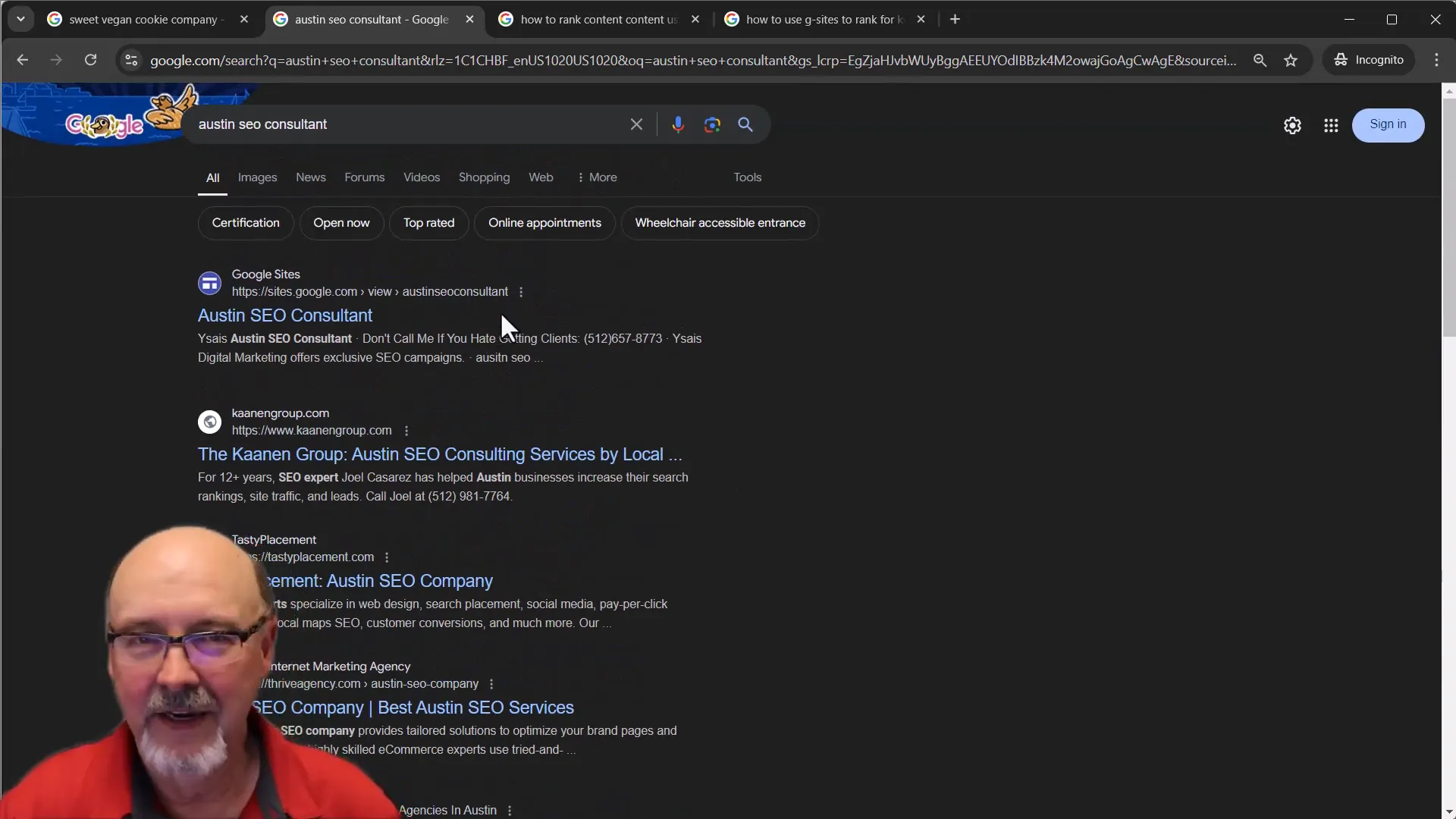
How do Google Sites rank compared to other websites?
Damon prompts the experts to discuss the ranking capabilities of Google Sites in relation to other websites. Patrick quickly highlights that Google Sites can indeed rank alongside traditional websites. "In fact, we've seen Google Sites placing above major competitors in search results," he shares.
Gary supports this by referencing a specific case study involving a dental client. "When we built Google Sites for them, we saw rankings shoot up. Some of these sites were landing in the top three positions for highly competitive keywords," he explains. This demonstrates that with the right optimization, Google Sites can compete effectively in search rankings.
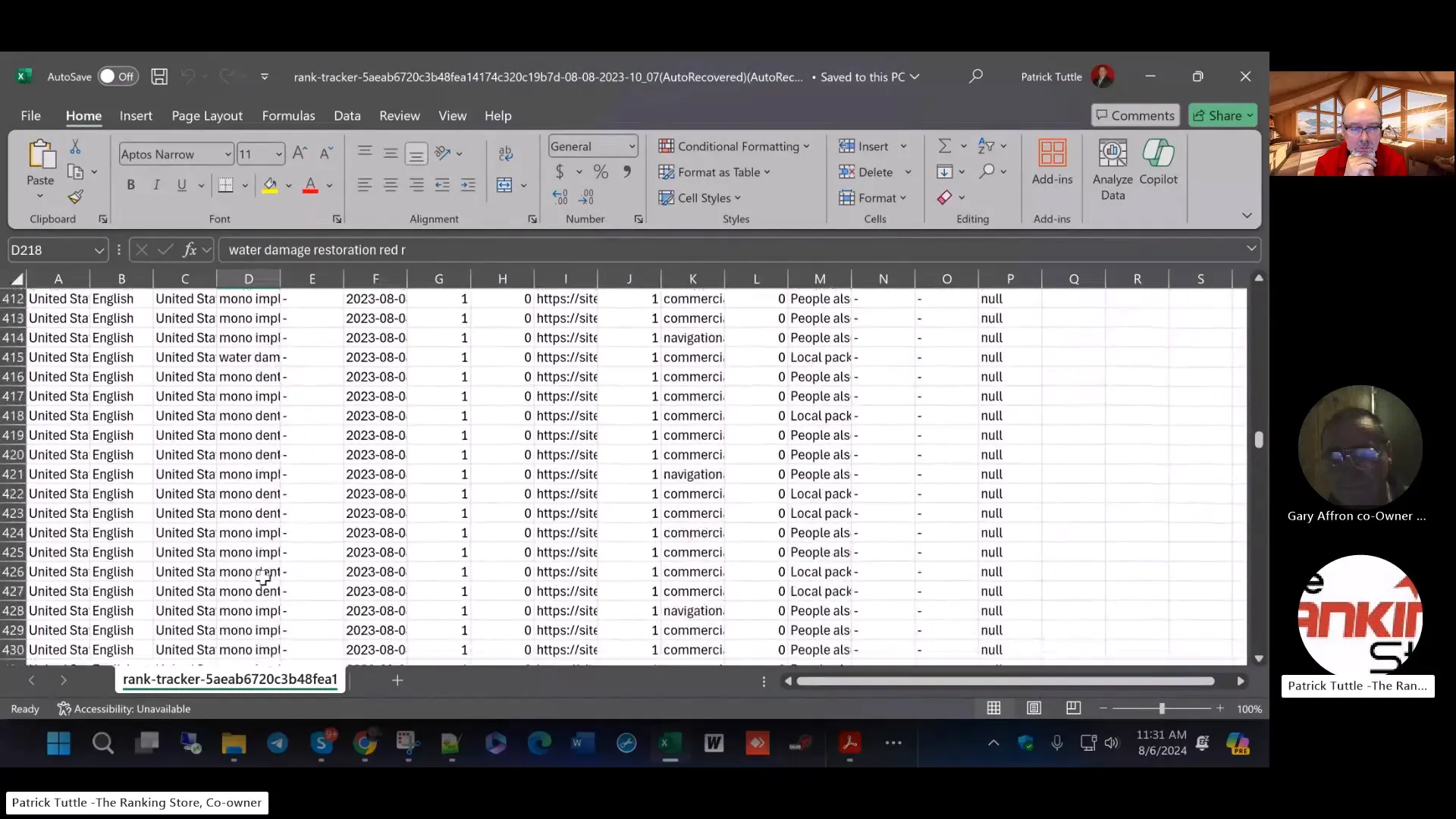
What factors contribute to the ranking of Google Sites?
The conversation shifts to the factors influencing Google Sites' rankings. Patrick points out that quality content is paramount. "Google prioritizes content that answers user queries effectively. If you're not providing valuable information, your site won't rank," he asserts. He emphasizes the importance of thorough research and relevance in creating content for Google Sites.
Gary adds that backlinks also play a crucial role. "Building backlinks to your Google Sites enhances their authority and visibility. It's like giving them a boost in the rankings," he explains. He encourages users to leverage other Google properties, like Google Analytics and Search Console, to maximize their site's potential.
Additionally, Patrick mentions the significance of user experience. "A well-structured, visually appealing site with easy navigation can significantly impact your ranking. Google favors sites that provide a good user experience," he notes.
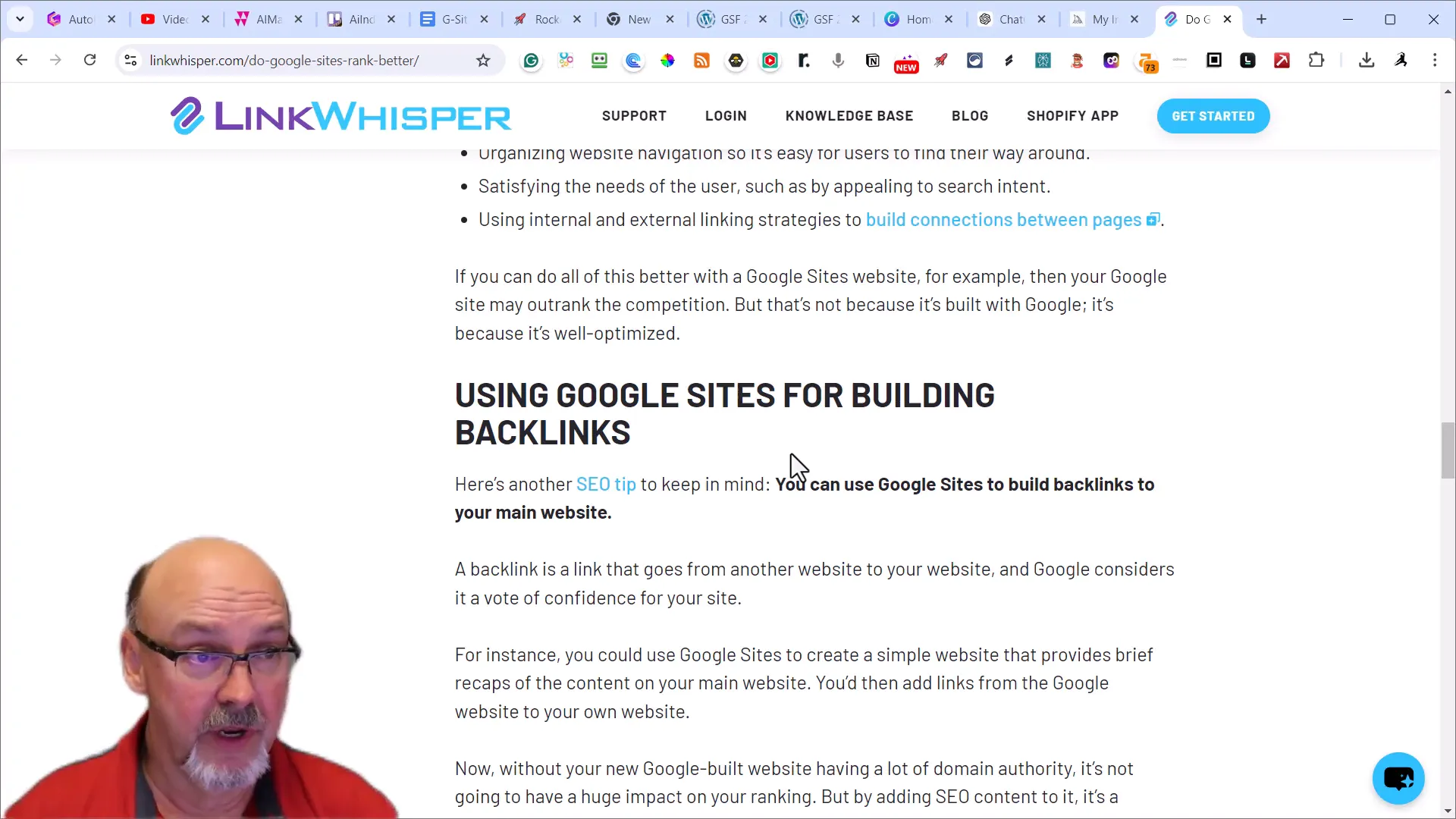
Can you share some successful case studies of using Google Sites?
Damon shifts the topic to successful case studies. Patrick eagerly shares one of their notable projects, which involved creating Google Sites for a client in the dental industry. "We built around a thousand Google Sites targeting various keywords. The results were astounding," he states. "Out of those, 477 sites ranked number one in their respective categories." This statistic highlights the effectiveness of their strategy.
Gary interjects, providing further details on the project. "We had sites for accident attorneys and water damage services that ranked immediately. It was a clear demonstration of how well Google Sites can perform when optimized correctly," he adds. This case study serves as a testament to the potential of Google Sites for various industries.
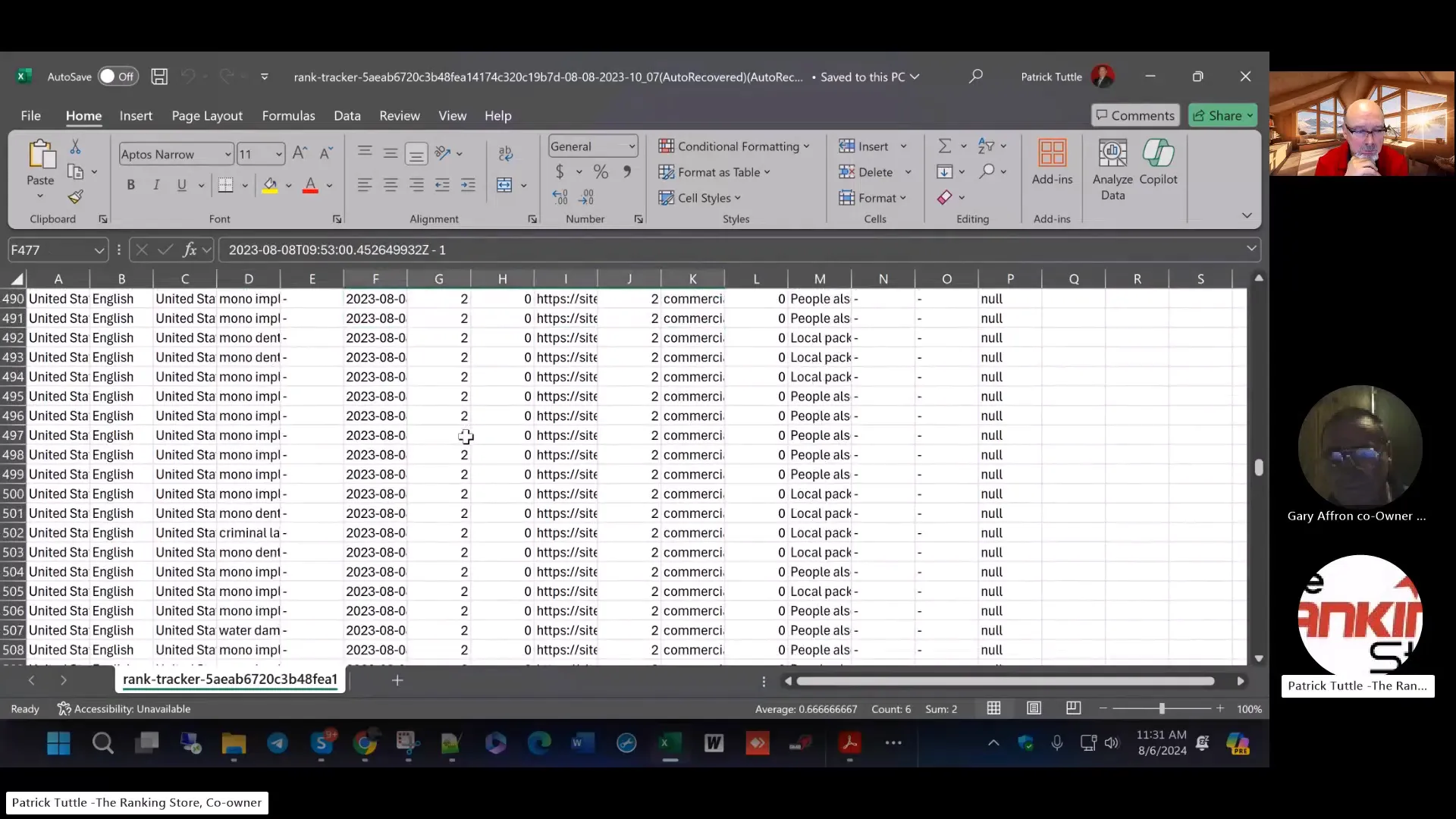
What are the advantages of using Google Sites for SEO?
As the discussion wraps up, Damon asks about the advantages of using Google Sites for SEO. Patrick begins by highlighting the high domain authority of Google Sites. "They start with a DA of around 98, which is incredibly advantageous for anyone looking to rank," he emphasizes.
Gary agrees, stating that the simplicity of Google Sites is another major benefit. "They are user-friendly and allow for quick setup and modifications. Even those with minimal technical skills can create a functional site," he explains.
Patrick also points out the integration capabilities within the Google ecosystem. "You can use Google Analytics, Search Console, and other tools seamlessly within your Google Site, making it easier to track performance and optimize accordingly," he notes. This interconnectedness is a significant advantage for marketers and business owners alike.
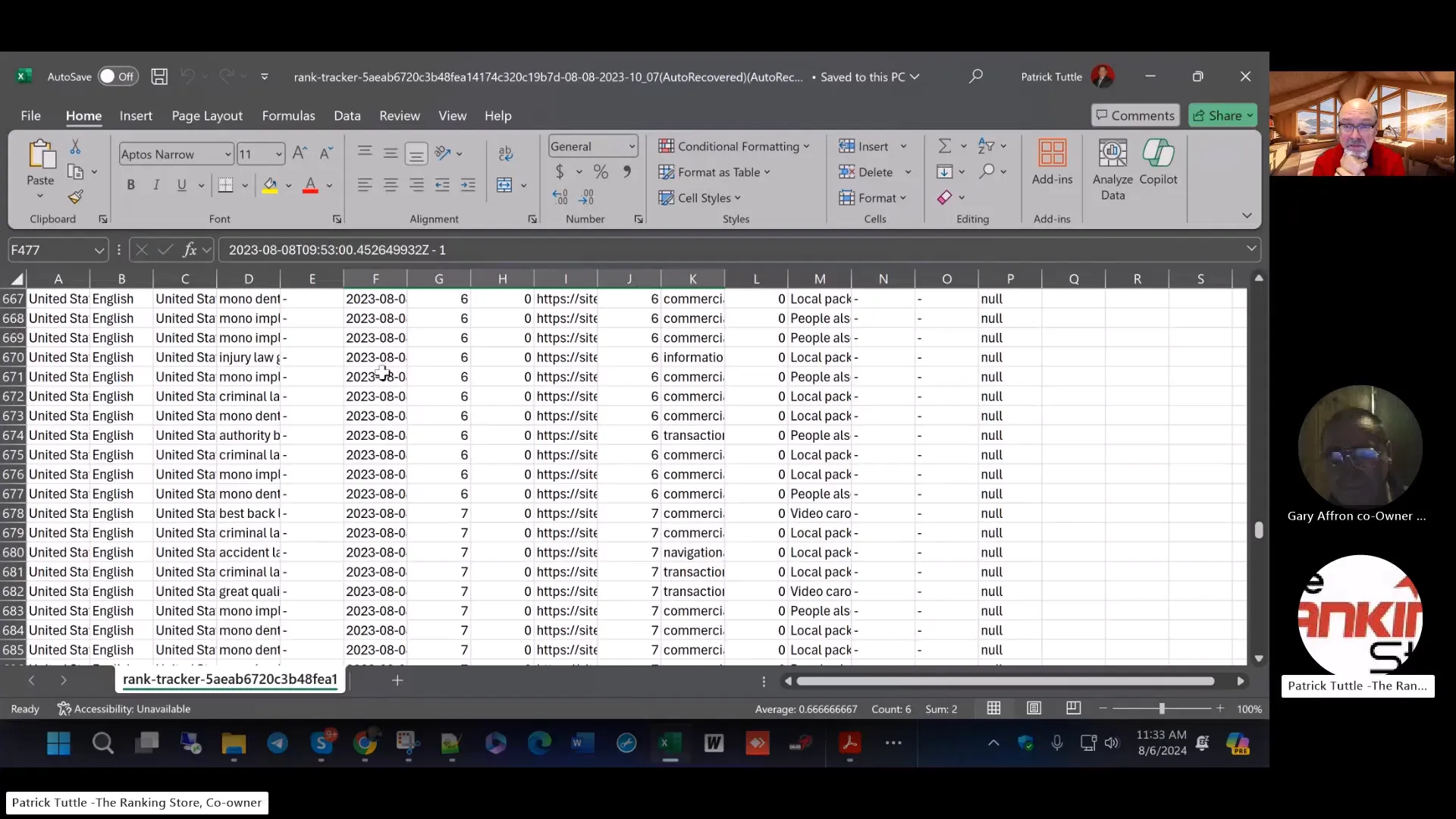
How does Google Sites Factory enhance the use of Google Sites?
Damon starts by asking Gary about the ways Google Sites Factory improves the overall experience with Google Sites. Gary explains, "Google Sites Factory is really a game changer. It automates a lot of the manual processes that used to consume hours of work." He continues, "Instead of spending days uploading content, you can now simply set it up and let it run overnight. It’s like having a digital assistant that never sleeps."
Patrick adds, "The efficiency it brings is incredible. For someone who’s managing multiple sites, Google Sites Factory saves an immense amount of time. It allows you to focus on strategy rather than getting bogged down in the details." He emphasizes that this automation is key for users looking to scale their operations.
Gary nods in agreement, stating, "It's not just about saving time; it's about increasing productivity. With this tool, you can produce content at a much faster rate, and that’s essential for staying competitive." He believes that this enhancement opens up new possibilities for users of Google Sites.

What new features have been introduced in Google Sites Factory?
Damon shifts the conversation to the new features in Google Sites Factory. Gary mentions, "The latest update introduced a feature that allows users to add fresh content to existing Google Sites without having to recreate everything from scratch. That’s huge!" He explains that this means users can keep their sites current and relevant with minimal effort.
Patrick elaborates, "Another exciting addition is the built-in AI that helps generate content. You can specify the tone and style you want, and the AI takes care of the rest. This means even those who struggle with writing can create professional content effortlessly." He notes that this feature is particularly beneficial for users who may not have extensive writing skills.
Gary also highlights the keyword integration capability. "The system can automatically pull in the top 100 keywords relevant to your content. This means you’re not just creating content; you’re optimizing it for search engines right from the start," he says. This feature significantly enhances the SEO potential of each site created with the tool.
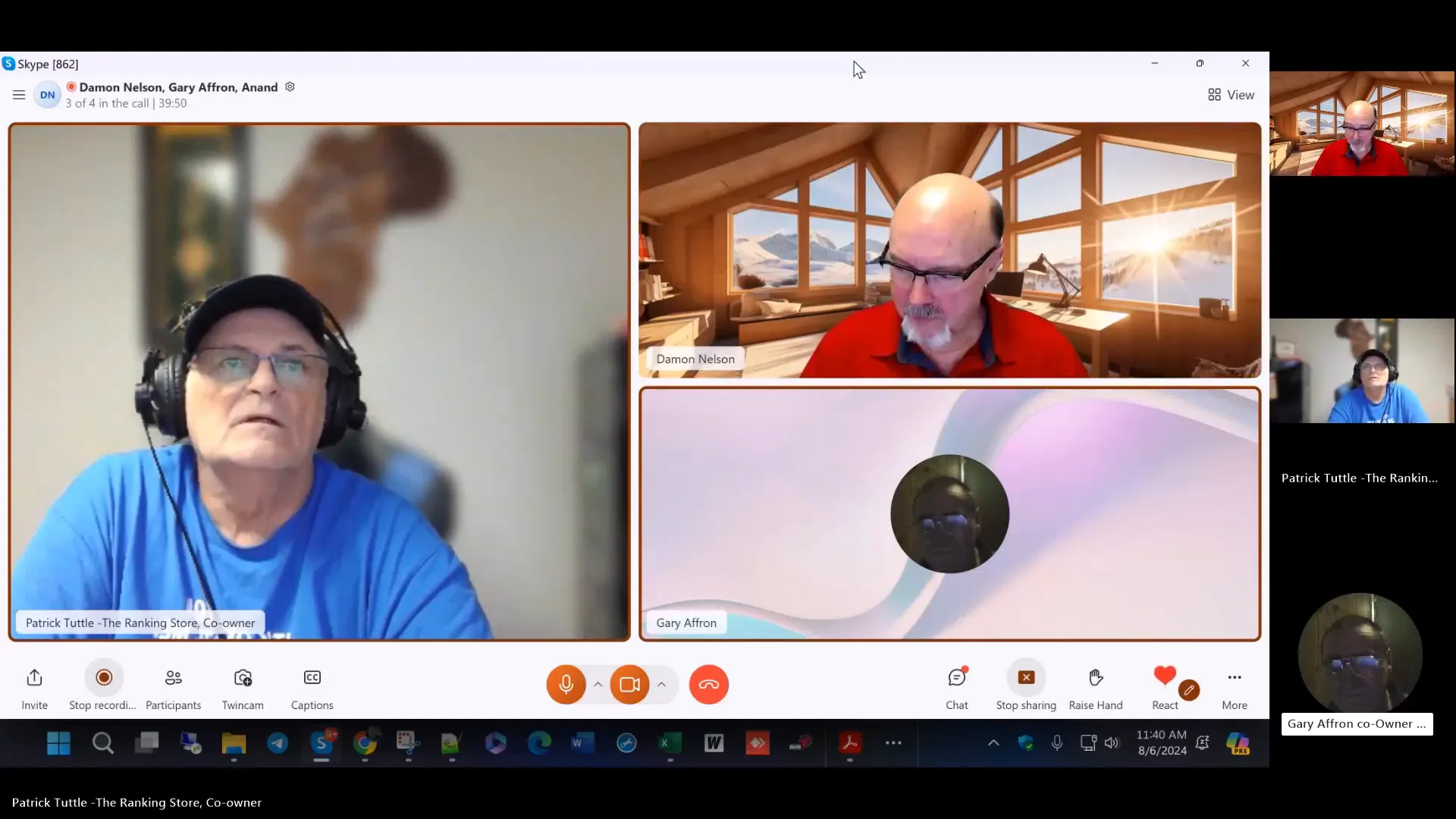
What is the importance of community feedback in developing Google Sites Factory?
Damon asks about the role of community feedback in shaping Google Sites Factory. Patrick responds, "Community feedback is vital. It directly influences our updates and features. The more users engage with the software, the more we learn about their needs." He emphasizes that this collaborative approach helps ensure the tool remains relevant and useful.
Gary agrees, stating, "When users share their experiences and challenges, it gives us insights into what needs improvement. We take this feedback seriously and incorporate it into our development process." He believes that this responsiveness not only enhances the software but also builds a strong user community.
Patrick adds, "We’ve created an environment where users can share ideas and suggestions in real time. This ongoing dialogue helps us innovate and keep Google Sites Factory at the forefront of digital marketing tools." He sees this as a significant advantage in a rapidly changing technological landscape.
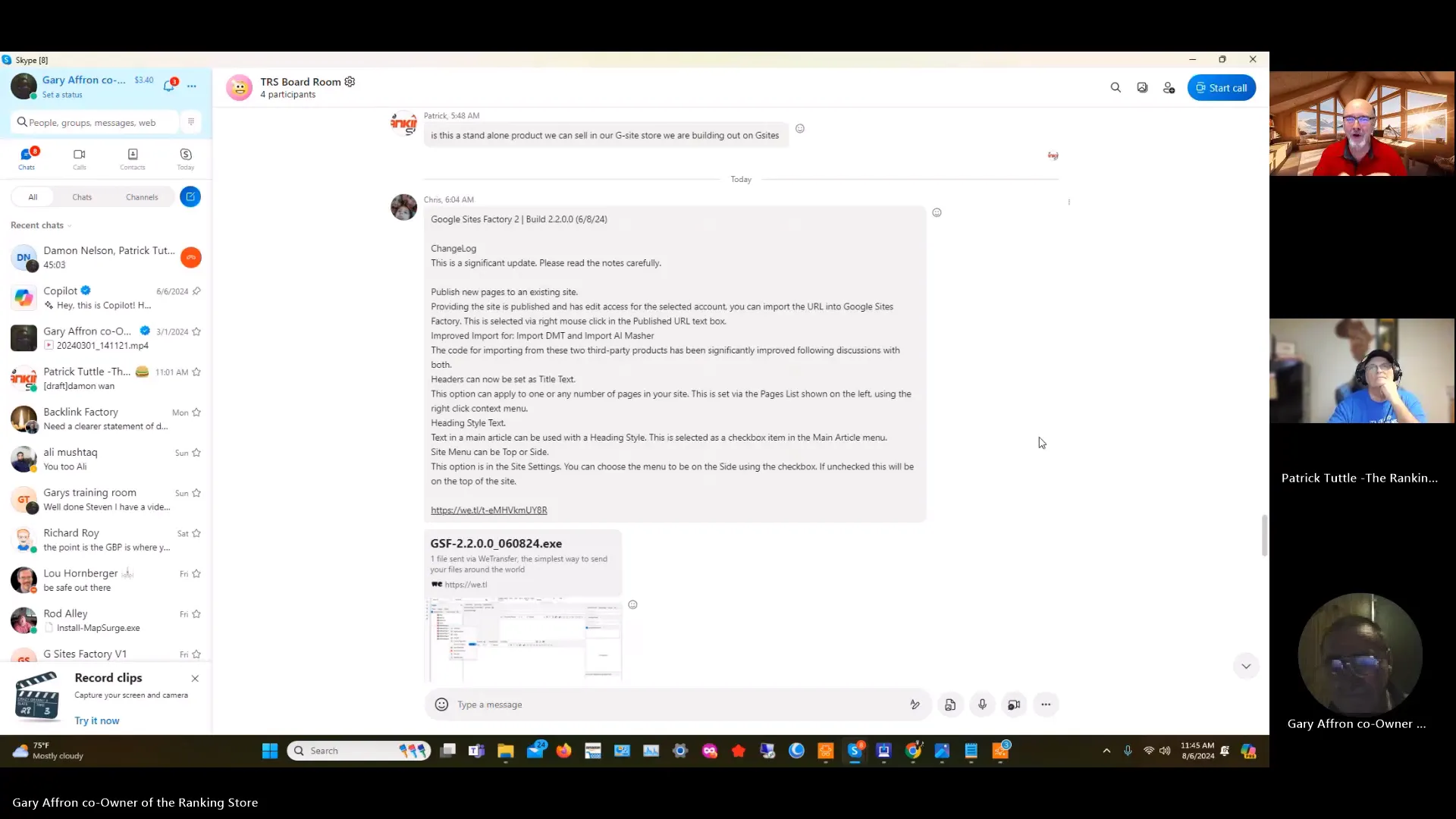
How do you envision the future of Google Sites and its applications?
Damon prompts Gary to share his vision for the future of Google Sites. Gary expresses his excitement, saying, "I see Google Sites evolving into a more robust platform for businesses of all sizes. The potential for integration with other Google services is enormous." He believes that as more features roll out, Google Sites will become an indispensable tool for marketers.
Patrick adds, "The future is all about automation and AI. Google Sites Factory is just the beginning. We envision a platform where users can create entire marketing campaigns seamlessly." He highlights the importance of adaptability in this vision, noting that the platform must evolve with user needs and technological advancements.
Gary concludes, "We have a lot of ideas on the table for future updates, and we’re committed to making Google Sites an even more powerful tool for everyone. The possibilities are endless." His enthusiasm reflects the ongoing commitment to innovation in the realm of digital marketing.
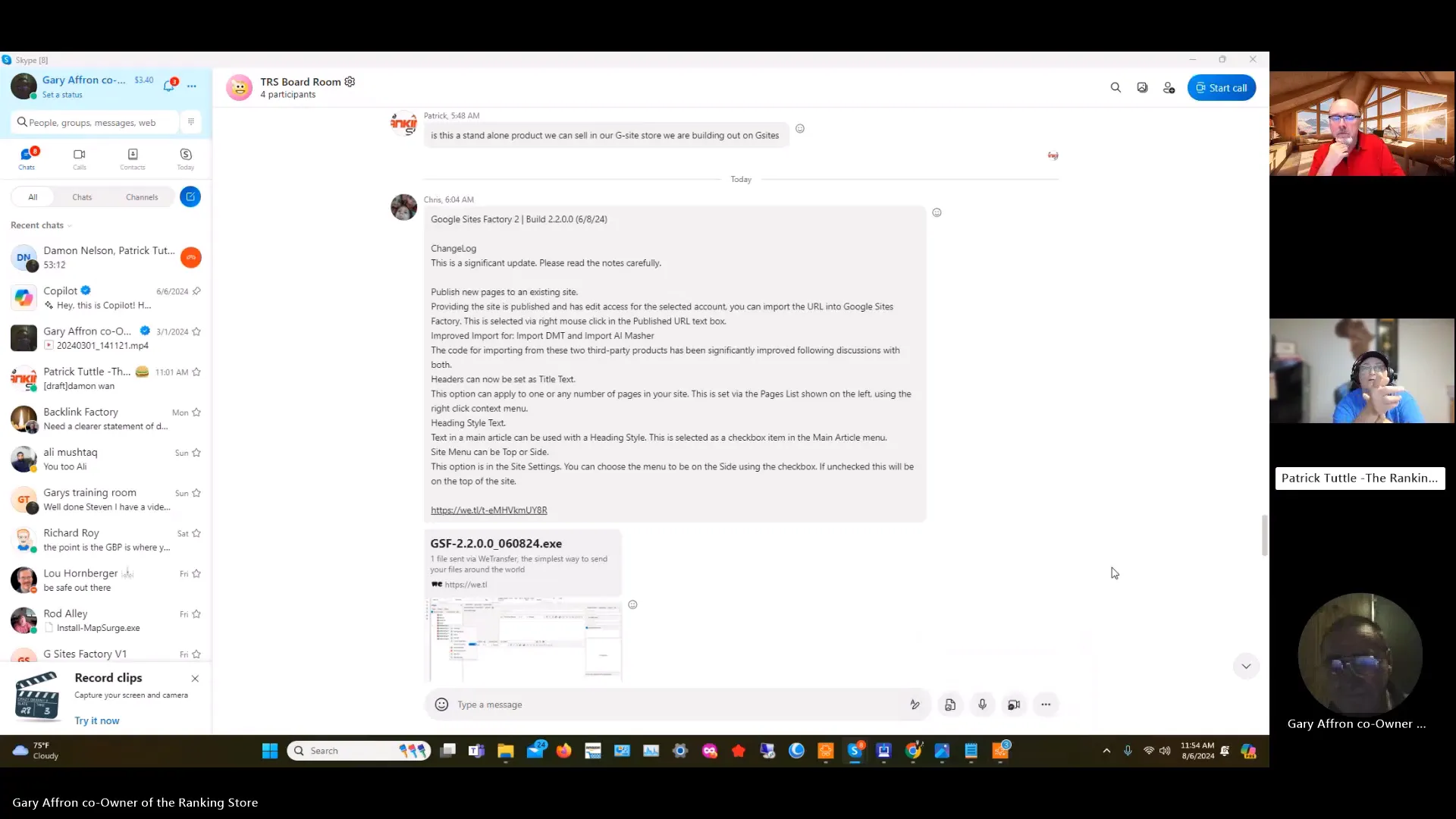
FAQ: Are Google Sites really effective for SEO?
Damon wraps up the discussion by addressing a frequently asked question: Are Google Sites effective for SEO? Patrick asserts, "Absolutely. Google Sites have a high domain authority, which gives them a leg up in search rankings." He explains that when optimized correctly, these sites can compete with traditional websites.
Gary adds, "The key is to focus on quality content and proper SEO practices. If you produce valuable information that answers user queries, Google Sites can perform exceptionally well." He emphasizes that the platform is not just a basic site builder but a legitimate tool for driving traffic and engagement.
Patrick concludes, "With the right strategies in place, Google Sites can be a powerful asset in any digital marketing strategy. They may be underestimated, but they are far from ineffective." This final note reinforces the potential of Google Sites when used strategically for SEO purposes.
Check Out Google Sites Factory
Give Google What They Love - Blog Content on their own sites
Learn More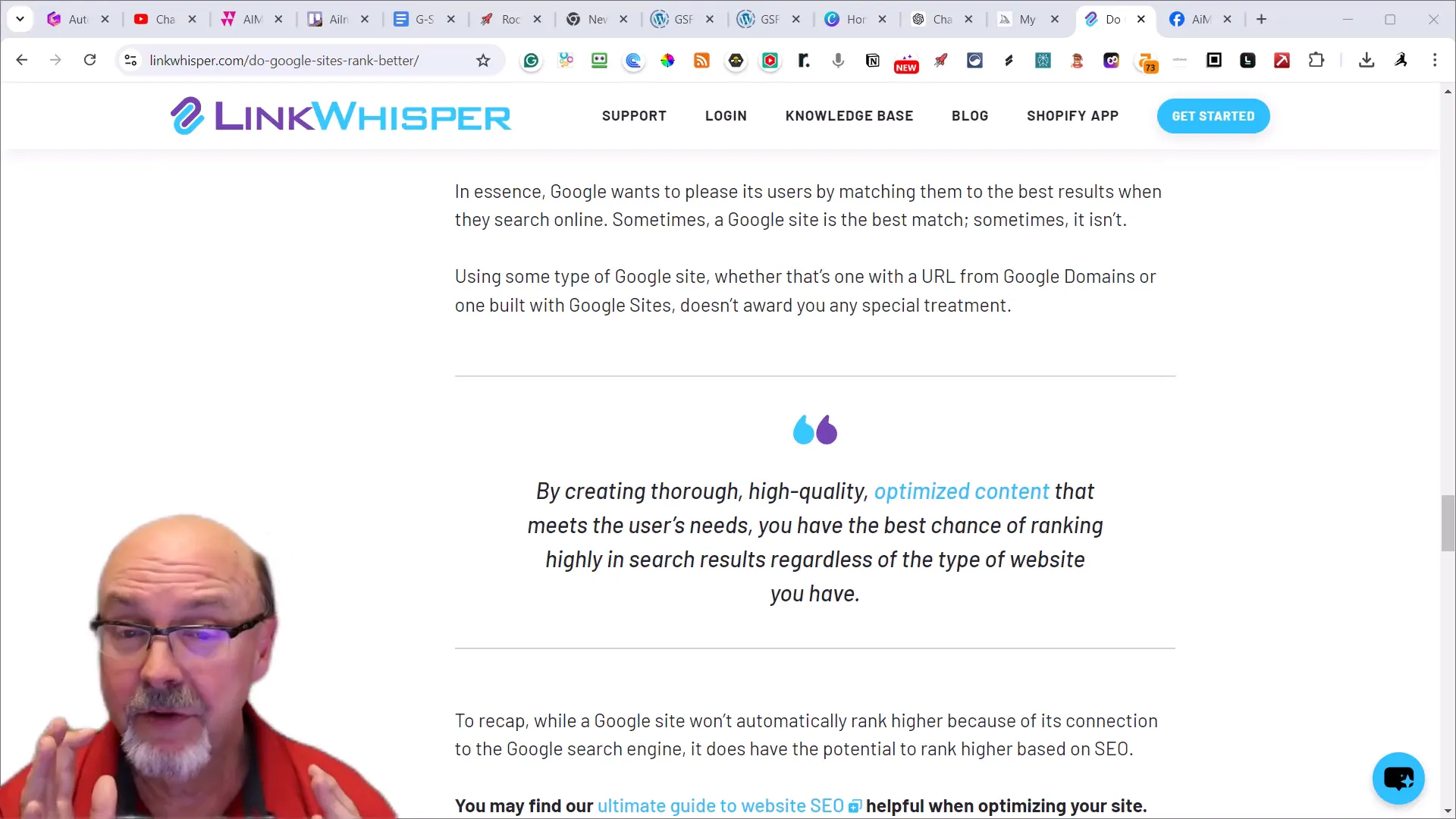
Stay connected with the most current Marketing News, Strategies, Tips , and Case Studies!
Join our monthly marketing magazine to receive the latest news and updates from our team of professional marketers and copywriters.
(Don't worry, your information will not be shared.)









